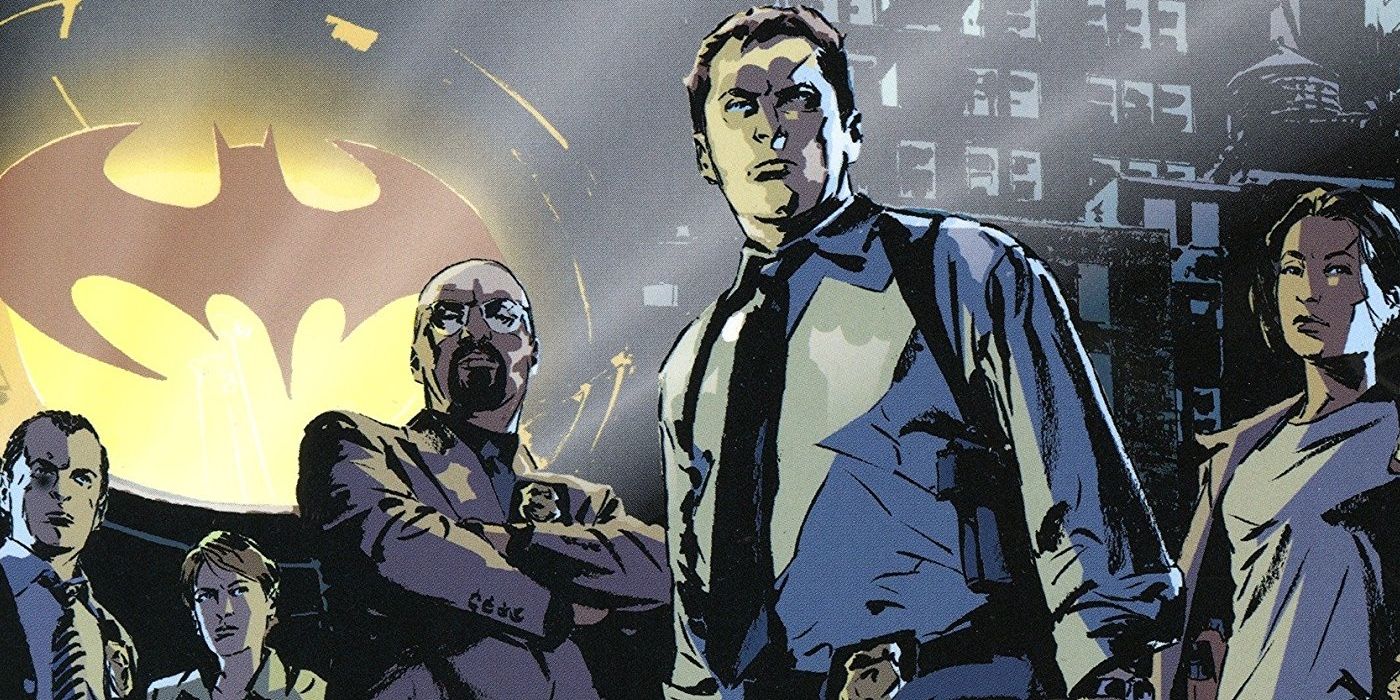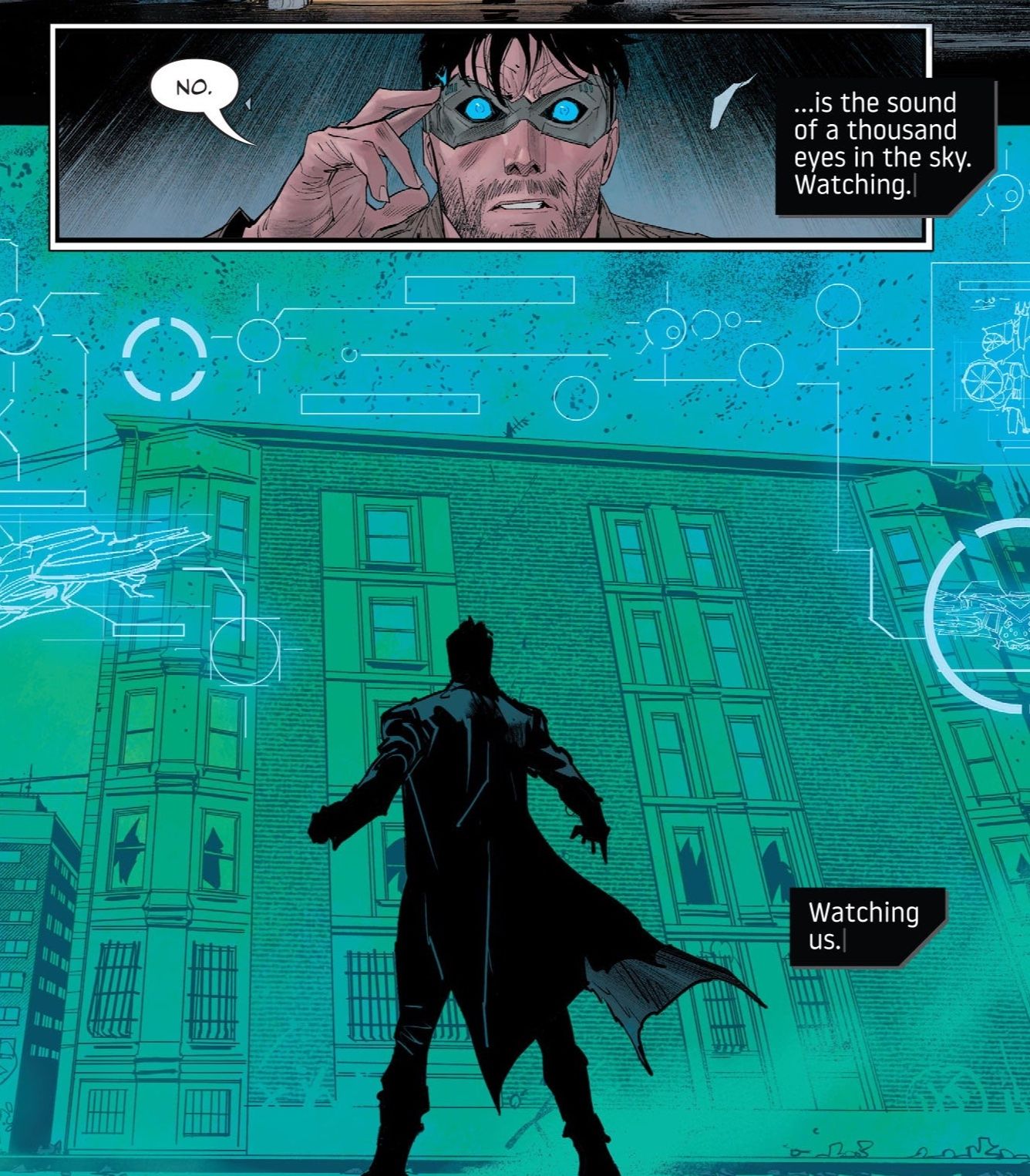Warning: This post contains spoilers for Future State: Dark Detective #3.
Batman, in his many incarnations, has almost always worked outside the system (the 1966 TV show starring Adam West being a notable exception), and the reasons are clear in Future State: Dark Detective #3. In an environment as corrupt as Gotham City, it's certainly an understandable position. Batman simply has a different set of priorities than the law - and those who ostensibly enforce it - and his inner monologue within the issue reveals that thought process to the reader.
In the dark, uncertain dystopia of DC's Future State, Gotham City is in a state of decay. The gothic architecture that has so often defined Gotham has given way to Blade Runner-esque neon billboards and a new system of justice led by the mysterious Magistrate. With an army of Peacekeepers and cloaked surveillance nano-drones, the Magistrate has the ability to track the whereabouts of every Gothamite at all times with impunity. Uncovering these clandestine frones is the final straw for Bruce Wayne.
Deprived of his home, his fortune, and any resources short of what he can scrounge together, Bruce manages to capture a nano-drone with electro-netting. By hacking into one drone, he can access the entire network - and to his horror, discovers the drones are everywhere, even inside the homes of Gotham citizens. "Twenty-four hour surveillance... blowing past an invasion of privacy to full-on panopticon," muses Bruce as he sees just how many drones exist in his city. Bruce accessing the nano-drone net leads to another discovery: a man was murdered twenty-six minutes before his estimated time of death by the police - meaning he was killed by the Magistrate's own Peacekeepers. "The Magistrate's justice was always about protecting property over humans... or any notion of peace."
To Bruce Wayne, the system does not exist to protect the innocent. The system exists to protect itself. It will choose property over people, institutions over individuals. That is a sentiment Bruce cannot abide, and working outside the system allows Bruce to choose to fight against it if he deems it necessary. However, that very same "if he deems it necessary" is a point of contention for Batman's critics: Batman is judge and jury (but famously not executioner) without oversight. He has created his own system, entirely independent of the Magistrate.
It's important to note that while Bruce Wayne certainly has many properties of his own, he prioritizes people because they were notably absent from his life. After his parents were killed, he had few friends of his own and was raised in Wayne Manor with only his butler Alfred to look after him. In short, he values what he lacked growing up. Batman appreciates the true value of people only because he knows how it feels to live without them.


